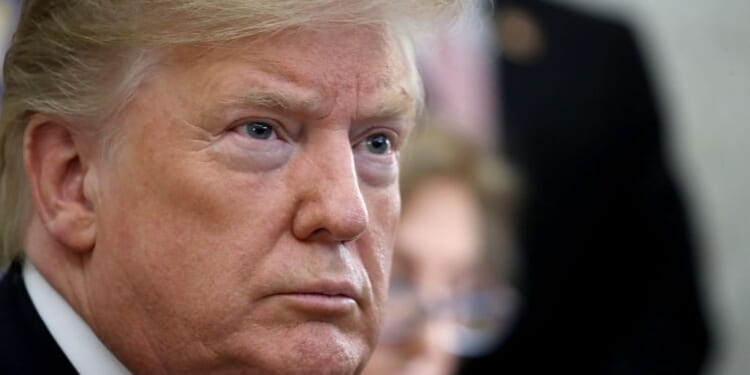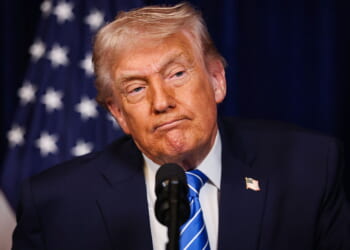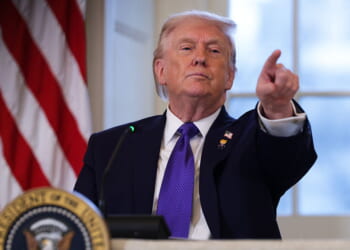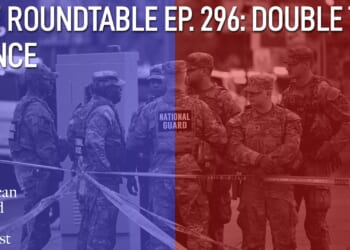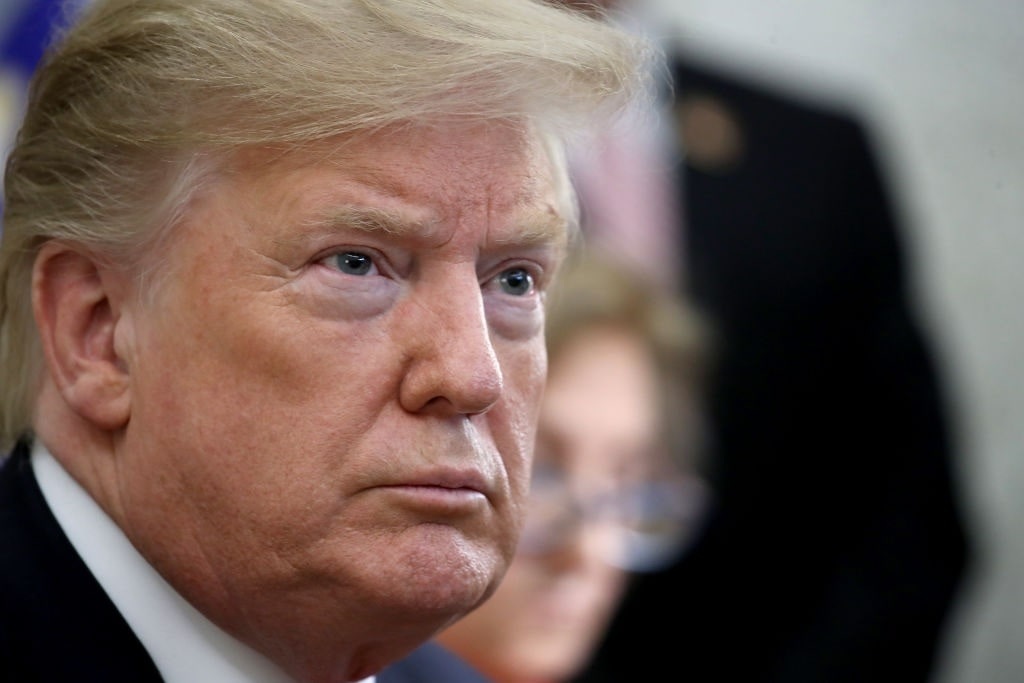
Democrats say Trump can’t strike Venezuela, but can they stop him?
President Donald Trump’s strikes on alleged drug boats in the Caribbean have raised the ire of legislators on both sides of the aisle. Those lawmakers have forced a vote, which will take place sometime in the next week or so, on a War Powers Resolution to block the president from ordering any strikes against Venezuela. But has Trump really been reaching beyond his authority?
And, whether he overreached or not, will this upcoming attempt to stop him be any more successful than the last? A similar measure failed last week 48-51 mostly along party lines. Sens. Lisa Murkowski (R-AK), Rand Paul (R-KY), and John Fetterman (D-PA) all crossed the aisle to vote counter to their parties’ majorities.
This time, Sen. Tim Kaine (D-VA) is sponsoring the measure, and Sens. Rand Paul and Adam Schiff (D-CA) are co-sponsors. The addition of Paul as a co-sponsor was reportedly designed to draw more Republican support than the last time. In a news release from Sen. Kaine’s office, the Kentucky Republican said: “The American people do not want to be dragged into endless war with Venezuela without public debate or a vote. We ought to defend what the Constitution demands: deliberation before war.”
Making an Impact
The US strikes are making an impression on the leftist dictator of Venezuela, Nicolás Maduro. Responding to a reporter’s question about the report from The New York Times claiming Maduro had offered the US a major stake in Venezuela’s oil and other mineral wealth, Trump said: “He has offered everything. You know why? Because he doesn’t want to f— with the United States.”
This came one day after the US military struck another vessel reportedly carrying drugs on Thursday, October 16, marking the sixth strike since September 6 against narco-traffickers on their way to the US along a well-known drug route. In a Truth Social post on Saturday, the president wrote:
“U.S. intelligence confirmed this vessel was loaded up with mostly Fentanyl, and other illegal narcotics. There were four known narcoterrorists on board the vessel. Two of the terrorists were killed. At least 25,000 Americans would die if I allowed this submarine to come ashore. The two surviving terrorists are being returned to their Countries of origin, Ecuador and Colombia, for detention and prosecution.”
The president said no American forces were harmed in the strike. That brings the total number killed in these actions to 29. The president turned up the heat on Maduro by authorizing the CIA to go into Venezuela. He announced on Wednesday:
“They’ve allowed thousands and thousands of prisoners, mental institution, people from mental institutions, insane asylums emptied out into the United States. We’re bringing them back. But, that’s a really bad thing, and they did it at a level that probably not many, many countries have done it, but not like Venezuela. They were down and dirty. And the other thing are drugs. We have a lot of drugs coming in from Venezuela and a lot of the Venezuelan drugs coming in through the sea. So, you get to see that. But we’re going to stop him by land also.”
War Powers Resolution
Congress passed the War Powers Resolution in 1973, over former President Richard Nixon’s veto, after the US withdrawal from Vietnam. The intent was to limit the president’s power to send American troops to armed conflict without approval from Congress, but its constitutionality has been argued since it was enacted. The resolution says, in pertinent part:
“(c) The constitutional powers of the President as Commander-in-Chief to introduce United States Armed Forces into hostilities, or into situations where imminent involvement in hostilities is clearly indicated by the circumstances, are exercised only pursuant to (1) a declaration of war, (2) specific statutory authorization, or (3) a national emergency created by attack upon the United States, its territories or possessions, or its armed forces.”
It’s that “armed attack” condition that President Trump argues authorizes him to strike the drug cartels. In a notification to Congress after the September 15 strike, the White House reportedly said the lethality of the drugs the cartels have been trafficking into the US constituted an “armed attack” against Americans. The president has designated several drug cartels and gangs as terrorist organizations, including Venezuela’s Tren de Aragua, Mexico’s Sinaloa Cartel, and El Salvador’s MS-13.
An estimated 80,000 people died from drug overdoses in the US in 2024 alone. That’s according to the Centers for Disease Control and Prevention’s National Center for Health Statistics. That number marks a nearly 27% decrease from 2023, when deaths from drug overdoses were estimated at more than 110,000.
Can It Pass? Should It?
The War Powers Resolution allows the current bipartisan measure to go directly to a floor vote, but it still seems unlikely to gain enough support from Republicans to pass. Even if it were to pass in both chambers, though, President Trump could still veto it – and then Congress would have to muster a two-thirds vote in both chambers to override.
That seems unlikely, but even if it could pass, should it? The pearl clutching on the left – and even from some Republicans – over Trump’s use of force against drug cartels raises an uncomfortable question: are the strikes in the best interest of the American people?
Liberty Nation does not endorse candidates, campaigns, or legislation, and this presentation is no endorsement.

